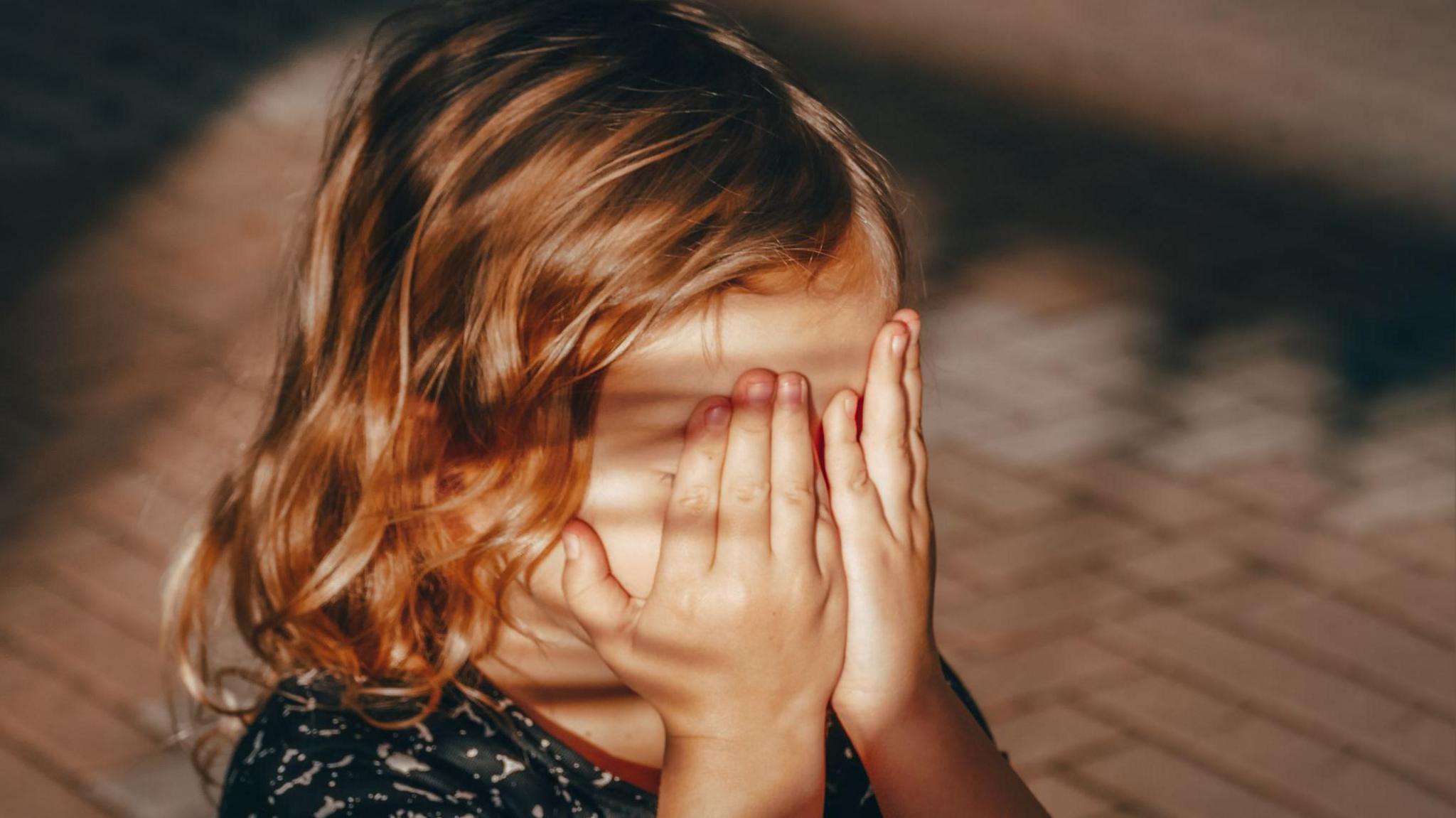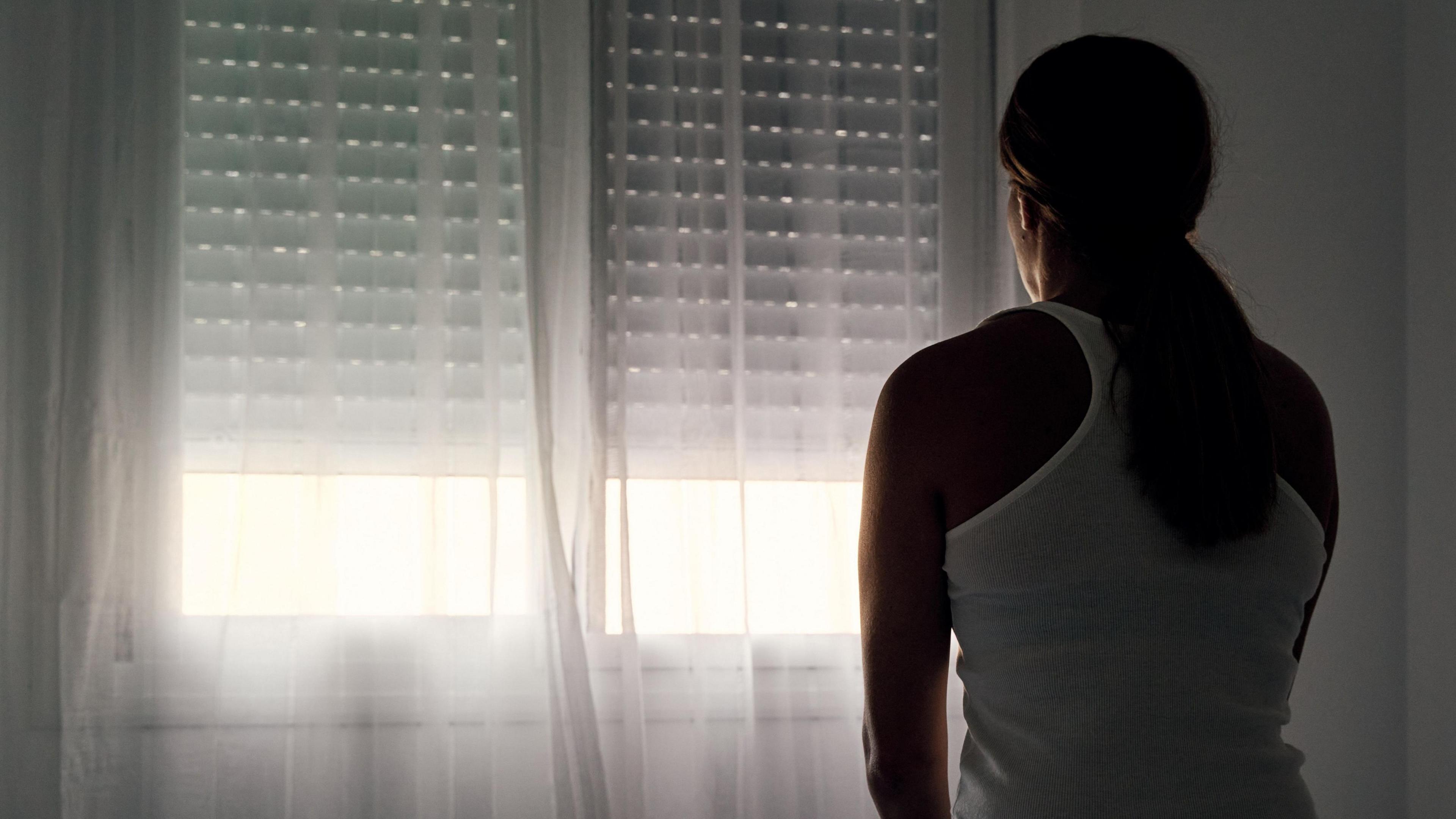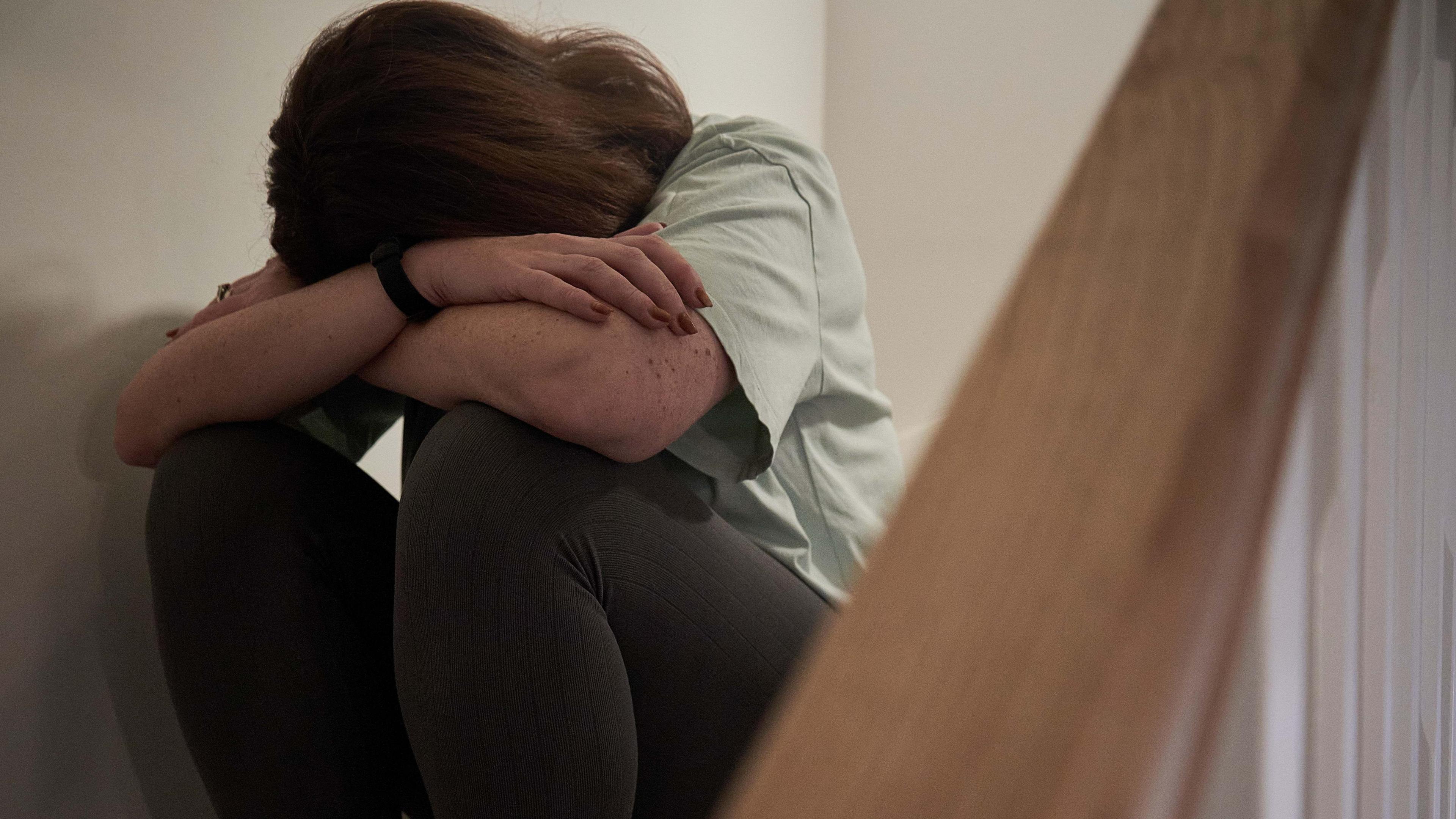Domestic abuse reports at record high in Ireland

Women's Aid said domestic abuse reports to its services have reached a record high
- Published
Reports of domestic abuse made to Women's Aid in the Republic of Ireland reached a record high in 2023.
The charity said there had been an 18% increase in disclosures of domestic abuse to it compared to the previous year.
This, it added, was the most it had received in its 50-year history.
Among the 40,048 disclosures of abuse about women and children, it found physical violence reports were up by 74% and economic abuse had risen by 87%.
What is domestic abuse?
The charity's definition of domestic abuse includes reports about physical, emotional and sexual abuse, as well as economic control.
Its figures come from 28,638 contacts by individuals to its national and regional support services last year.
Sarah Benson, chief executive of Women's Aid, said: "We know that so many more women suffer alone, in silence and without specialist support.
"Most of the women contacting the Women’s Aid National Freephone Helpline and regional face-to-face services disclosed that they were being subjected to and threatened with multiple forms of abuse at the same time, which constitutes coercive control by a current or former male intimate partner."
Coercive control is defined by the charity to be an act or pattern of acts of assault, threats, humiliation and intimidation or other abuse that is used to harm, punish or frighten their victim.
'No longer safe'
Ms Benson said economic abuse is an insidious form of abuse that thousands of women are suffering through.
"It's one of the more underreported tactics in domestic violence," she said.
"It is an incredibly potent tool to keep somebody under control, we hear from women about trading safety for poverty.
"If you're not in control of family finances it can trap women and it's used as a tool of degradation.
"Women have to negotiate for groceries for children and may have to accede to sexual contact that is unwanted."
She added that the housing crisis in Ireland is adding to the issue.
"Refuge itself should only be for an emergency response for a short period of time," she said.
"We know from our colleagues in those services, very often, women have to choose between homeless and a place that is no longer safe."

Women's Aid heard reports of women being threatened about their children's lives
In December, Irish police reported it had received 54,000 domestic abuse complaints in 2023, an increase of 8% compared to the previous year.
In Northern Ireland, the latest police figures showed a small increase in the number of domestic violence incidents in 2023.
There were 33,071 incidents, an increase of 144 on the previous year.
On Wednesday, Women's Aid also said they had heard from service users that their partners or ex-partners were subjecting them to a broad and brutal pattern of abuse.
Among these, women reported assaults with weapons, constant surveillance, and monitoring, relentless put downs and humiliations and the taking and sharing of intimate images online.
There was also complete control over all family finances, sexual assault, rape and being threatened with theirs or their children’s lives.
'Historic neglect'
The victims said the impact of the abuse ranged from exhaustion, isolation, and hopelessness to serious injury, suffering miscarriages, poverty, feeling a loss of identity and suicide ideation, hypervigilance, and homelessness.
Ms Benson said there had been increased resources for vital specialist domestic violence services, however, "it must be acknowledged that this is coming from a baseline of historic neglect".
"This is all excellent progress, but there is still much to be done to ensure correct implementation and enforcement of all these measures. It will require focus, co-ordination and – crucially – continued investment from government to see the ambitions of the strategy fully implemented.”
'Very frightening'
Eve McDowell, a policy officer from Stalking Ireland, says although there is now recognition as a stand-alone offence since last year, people are still not coming forward when they are being stalked.
"I'm still shocked by the amount of people who are stalked and don't come forward, over half don't report to Gardai," she said.
"To make the first step can be very frightening, so it's important Gardai respond in a trauma-informed way."

Women's Aid say at least 1 in 4 women in Ireland are subjected to some form of abuse from a current or former partner
The report also notes that nine women lost their lives in violence circumstances in Ireland in 2023.
Since 1996 to June 2024, 266 women have died in such circumstances, with 78% of those women killed in their own homes.
Women's Aid say at least 1 in 4 women, external in Ireland are subjected to some form of abuse from a current or former partner.
Of the women in contact with Women's Aid, 86% were abused by a current or former male intimate partner. An additional 9% of women were abused by a man who was not an intimate partner or ex-partner.
Five per cent of women disclosed abuse by a female abuser.
Last year, 2,603 women in contact with the Women's Aid National Freephone Helpline disclosed that they had contacted An Garda Síochána because of domestic abuse. 52% found the Gardai helpful, while 48% found the Gardai unhelpful.
712 callers to the Women's Aid 24hr National Freephone Helpline identified as being deaf/hard of hearing, disabled, coming from a migrant, traveller, or Roma background, with 61% of these women holding migrant status. Women's Aid facilitated 609 calls through 36 different languages, with Polish and Portuguese being the most frequent of these languages.

The report also notes that nine women lost their lives in violence circumstances in Ireland in 2023
The Women's Aid Annual Impact Report 2023 key statistics:
40,048 disclosures of domestic abuse, including
35,570 disclosures of abuse against women, including
1,448 disclosures of sexual abuse
21,974 disclosures of emotional abuse
7,851 disclosures of physical abuse
4,297 disclosures of economic abuse
4,478 disclosures of abuse against children